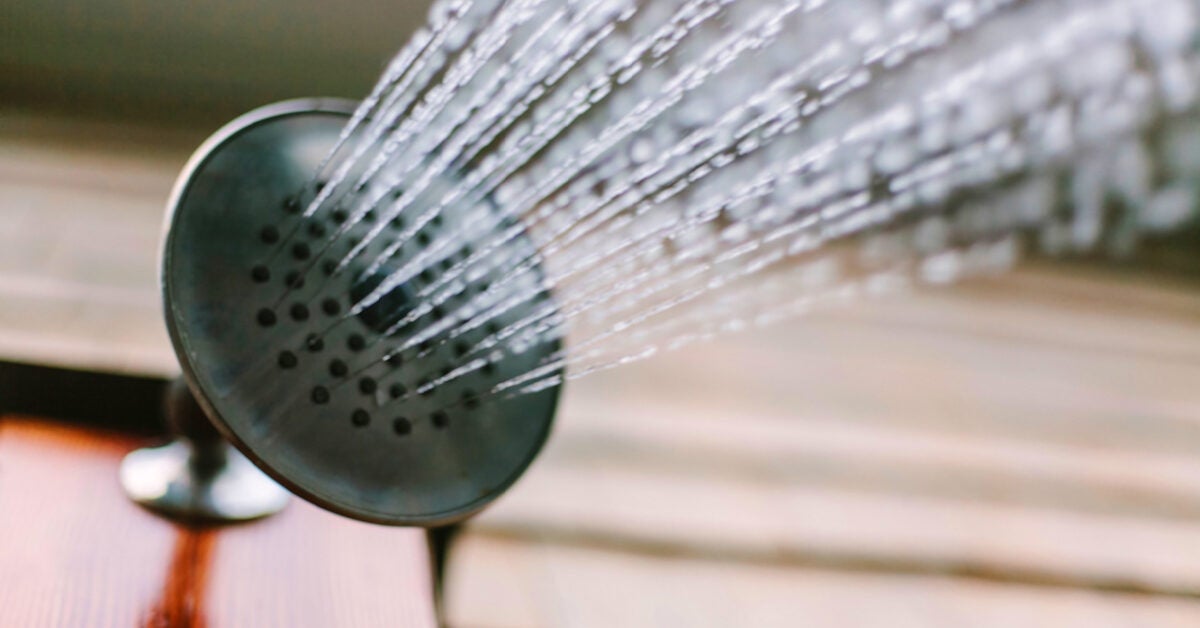Eczema: Does Hot Water Make It Worse? - Healthline

Keeping your skin clean and well moisturized is one of the top self-care tips for managing eczema. However, that doesn't mean it's a good idea to soak for hours in a hot bath.
Hot water might feel good on irritated skin and temporarily stop itching, but it will dry out your skin and lead to eczema flare-ups. Showering or bathing in lukewarm water instead can soothe skin and reduce eczema symptoms.
Read on for more information about how hot water may affect your eczema.
A hot shower can help relieve stress and aching muscles, but it's not the best choice for people with eczema. Hot water can strip your skin of the natural oils it needs to stay healthy. This can make your skin dry and lead to worse itching and irritation. Additionally, hot water can increase inflammation in your skin. It's recommended to keep your shower or bath temperatures below 86°F (30°C).
Hot water can provide immediate itch relief. Many people with eczema report that very hot water feels good on their skin and takes away the itching and inflammation. This happens because hot water can stimulate the nerves on your skin in a way that's similar to scratching.
However, while hot water can provide instant relief of symptoms, it will likely make them worse in the long term. Instead of using hot water, you can apply moisturizer or a topical eczema cream. This can stop your itch without causing a worse flare-up later.
It's important to take a bath or shower at least once a day when you have eczema. A dermatologist can let you know if you need to bathe more or less often for any reason. Keeping your skin clean is important in managing all types of eczema including common types such as atopic dermatitis, contact dermatitis, and rare forms of eczema such as nummular eczema or chronic hand eczema.
Following some eczema-friendly bathing tips can help you or your child with eczema get symptom relief to manage the condition:
- Only use lukewarm water. Very hot water can dry out skin and make eczema worse.
- Avoid bubble baths and bath oils. Products such as bubble baths and bath oils often have ingredients that lead to skin irritation and eczema flare-ups.
- Avoid scrubbing or using soap on eczema. It's a good idea to avoid directly washing the skin vigorously or with soap if there's an active eczema rash.
- Gently wash eczema-free skin. Hard scrubbing or rubbing the skin may trigger an eczema flare-up.
- Limit baths to 20 minutes or less. Bathing for longer than 20 minutes can dry out the skin. For some children, 20 minutes is too long. In this case, your child's dermatologist might recommend limiting baths to 5 or 10 minutes.
- Apply moisture right away. It's best to apply a fragrance-free moisturizing lotion to your child's skin as soon as they get out of the bath. Use a towel to dry their skin and then apply lotion.
- Try adding bleach to bathwater. The American Academy of Allergy, Asthma & Immunology recommends adding 1/2 cup bleach to a full bathtub or 1/4 cup bleach to a half-filled bathtub to soothe eczema and prevent infections. For babies and toddlers, a teaspoon of bleach can be added to a baby bath.
- Consider other bath additives. Bubble baths and bath oils aren't a good idea for children with eczema, but adding oatmeal, baking soda, salt, or vinegar to a bath can help soothe skin. Always check with your child's dermatologist before trying these bath additions.
Eczema is an autoimmune skin condition that causes red or discolored and itchy patches to appear on your skin. The condition is chronic. Most people with eczema go through periods of clear skin and periods of having eczema rashes. A period of having eczema rashes is called an eczema flare-up.
Eczema is most often diagnosed in children. Some children grow out of eczema symptoms as they age. However, eczema is lifelong in many cases and some people are adults when they are first diagnosed. Symptoms of eczema include:
- itchy red or discolored patches on the skin
- dry skin
- thick skin
- skin that is warm to the touch
- infection
- a rash that resembles goosebumps
- puss filled areas of skin
- inflammation of hair follicles
Eczema is sometimes confused with other skin conditions. For instance, psoriasis is also a chronic skin condition that can resemble eczema. Just like eczema, it causes rashes and itches on your skin. However, psoriasis patches tend to be white and scaly while eczema patches tend to look red and inflamed. Infections such as mycosis can also lead to rashes that resemble eczema in some people, but they aren't chronic.
The best way to determine if your skin rash is caused by eczema is to make an appointment with a dermatologist. They can examine your rashes and discuss your symptoms with you. They can also run tests such as skin cultures if they need more information to make a diagnosis.
Hot water can dry out your skin, leading to irritation and itching. It can also trigger an eczema flare-up. It's a better idea to use warm water in your shower or bath.
Children with eczema should be bathed carefully without bubble bath or bath oils. It's best to limit baths to 20 minutes and apply moisturizer right after the bath.
A dermatologist can help you manage your eczema and develop a treatment plan.
Comments
Post a Comment